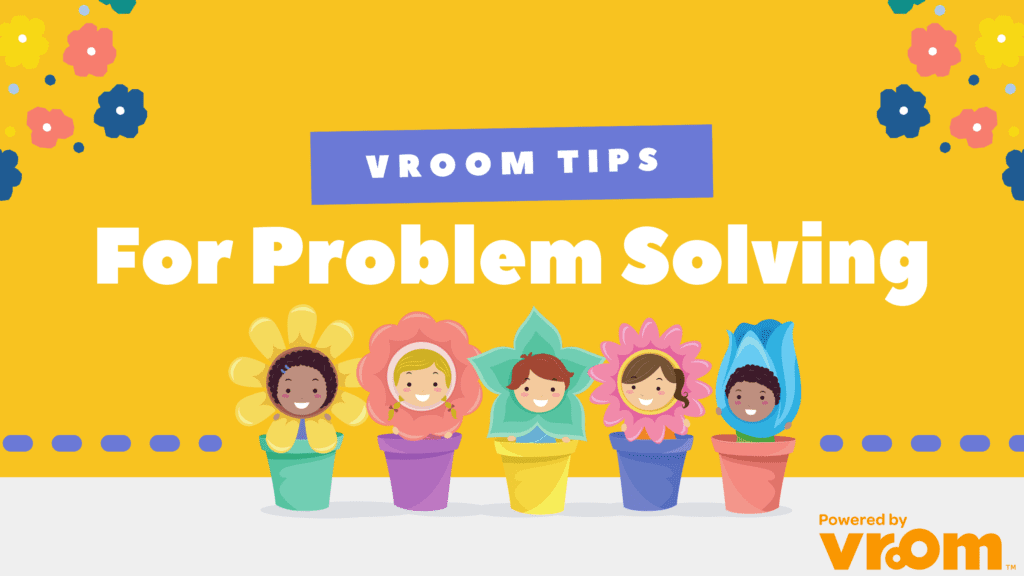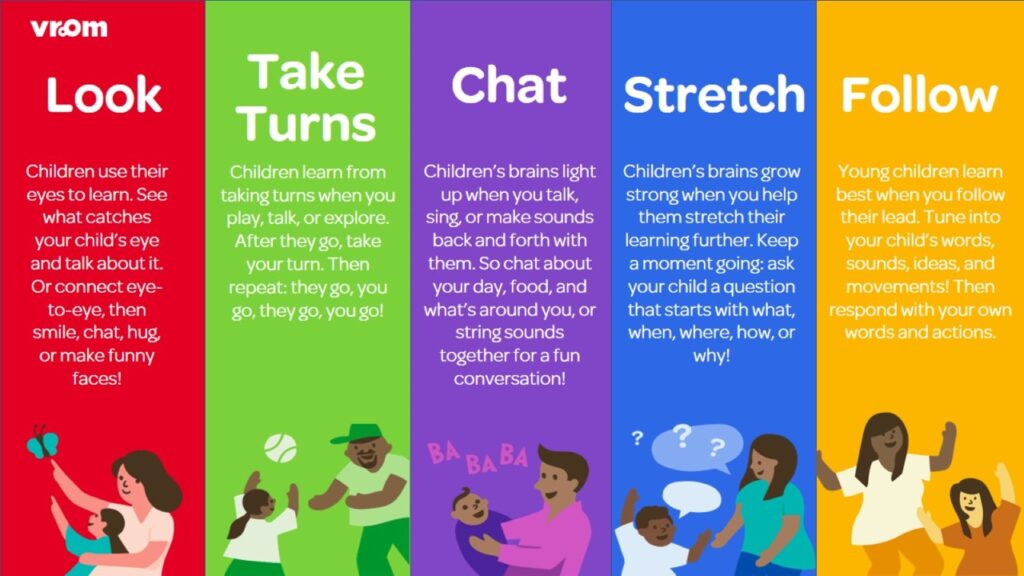It’s never too early to teach a child how to be a skilled problem-solver. The best part of promoting problem-solving in early childhood is that adults can use everyday situations to practice. Helping young children develop problem-solving skills is crucial for their growth and future achievements. These skills go beyond finding answers; they involve thinking creatively, trying different approaches, and learning from mistakes. Here’s why it matters and some easy ways parents in Nevada can encourage it:
Why Problem Solving Matters:
Problem-solving helps children learn to think for themselves, boosts their confidence, and prepares them for school and life challenges. Research shows kids who are good at solving problems do better in school and get along better with others.
Simple Tips for Parents:
- Encourage Playtime: Provide toys like blocks, puzzles, and art supplies that let kids explore and figure things out on their own. This helps them develop creativity and problem-solving skills.
- Ask Questions: Instead of giving answers right away, ask your child questions like, “What do you think would happen if…?” This gets them thinking and figuring out solutions themselves.
- Show How It’s Done: When you face a problem, talk about how you’re going to solve it. This helps kids learn problem-solving strategies by watching you.
- Let Them Decide: Give your child choices, like what game to play or which book to read. This lets them practice making decisions and learning from them.
- Work Together: Encourage your child to play and solve problems with others. This teaches teamwork and helps them learn how to solve problems together.
- Celebrate Effort: Praise your child not just for solving a problem but for trying hard and not giving up. This builds their confidence and teaches them to keep trying when things get tough.

Vroom Tip of the Month

Today’s Vroom Tip is called ‘Close Your Eyes. A simple tip like this can promote your child’s brain development in many ways. Guessing games like this can help promote your child’s critical thinking skills. Talking about different textures with young children helps their critical thinking as they grow. It encourages them to use their senses, especially touch, to learn about the world. By feeling and describing textures like smooth, rough, bumpy, or soft, children learn to notice differences in how things feel. This helps them understand their surroundings better and learn to group things based on how they feel.
Discussing textures also helps children think carefully and make connections between what they feel and what they know. For example, when a child compares the rough feeling of sandpaper to the smoothness of glass, they are thinking about how things are similar or different. This kind of thinking helps them solve problems and understand ideas more deeply.
Talking about textures is also great for building language skills. When children talk about what they feel and explain what they notice, they practice using words and expressing themselves clearly. This helps them learn to communicate effectively with others.
Learn the Science: The Importance of Promoting Problem-Solving Skills in Early Childhood
Promoting problem-solving skills in early childhood is crucial for your child’s development and future success. Research consistently shows that children who develop strong problem-solving abilities early on tend to perform better academically and have stronger social skills. These skills also contribute to their overall resilience and ability to adapt to challenges later in life.
To nurture problem-solving skills in your child, start with everyday activities that encourage exploration and discovery. Simple activities like playing with building blocks, solving puzzles together, or asking open-ended questions can make a big difference. For example, you can ask your child, “How can we build a taller tower?” or “What do you think will happen if we try this?” These questions stimulate their critical thinking and creativity as they experiment with different solutions.
Another effective strategy is to model problem-solving behavior yourself. When you face a challenge or make a mistake, talk about how you’re going to approach solving the problem. This teaches your child that it’s okay to encounter difficulties and that problem-solving is a natural part of learning and growing.
Additionally, praise your child not only for finding solutions but also for their effort and perseverance in trying different approaches. This positive reinforcement builds their confidence and encourages them to keep trying when faced with new challenges. By incorporating these simple strategies into your daily interactions with your child, you can help them develop essential problem-solving skills that will benefit them throughout their lives

Vroom’s Brain Building Basics provide essential tools for enhancing your child’s problem-solving skills, paving the way for their future success. These simple, everyday activities are crafted to stimulate brain development during the critical early years of childhood. By engaging your child in activities like exploring different textures, asking them open-ended questions, or encouraging imaginative play, you’re helping them develop key cognitive abilities such as creativity, critical thinking, and perseverance. For example, when your child tries to figure out how puzzle pieces fit together or builds structures with blocks, they’re not just having fun—they’re also learning to solve problems and think independently.
The beauty of Vroom’s approach lies in its foundation in scientific research that emphasizes the importance of early neural connections in shaping long-term learning outcomes. By actively participating in these brain-stimulating activities with your child, you play a crucial role in nurturing their cognitive development. As they learn to approach challenges with curiosity and confidence through Brain Building Basics, they gain skills that will support their academic success, social relationships, and overall growth. By incorporating these practices into your daily routine, you’re not only enriching your child’s developmental experiences but also equipping them with the tools they need to tackle obstacles and thrive in all aspects of life.
There are many free programs for caregivers looking for tips on how to create a close bond with their children. Parenting is hard, give yourself some grace and reach out for help if and when you need it. If you would like to know how the Children’s Cabinet can support you, or connect you with other resources, call us:
Children’s Cabinet, Reno – 775-856-6200; Children’s Cabinet, Las Vegas – 702-825-8978
Here are some national resources that parents and caregivers can utilize to help children learn problem-solving skills in early childhood:
PBS Kids: Offers a variety of games, videos, and activities designed to promote problem-solving and critical thinking skills for young children. Website: PBS Kids
Zero to Three: Provides resources and tips for parents on nurturing early childhood development, including problem-solving strategies. Website: Zero to Three
National Association for the Education of Young Children (NAEYC): Offers articles, guides, and resources on early childhood education, including promoting problem-solving skills. Website: NAEYC
Child Development Institute: Provides articles and resources on child development, including activities and tips for fostering problem-solving skills in young children. Website: Child Development Institute
Sesame Workshop: Offers resources, videos, and activities that promote problem-solving skills through the familiar characters of Sesame Street. Website: Sesame Workshop
Mind in the Making: Created by Ellen Galinsky and the Bezos Family Foundation, Mind in the Making emphasizes the importance of executive function skills, such as problem-solving, in early childhood development. It offers resources, workshops, and research-based information to empower adults in promoting these skills in children. Website: Mind in the Making
These resources offer a range of materials and activities that can support parents and caregivers in nurturing problem-solving skills in young children, laying a solid foundation for their future success.
Download the Vroom App Today!

It can seem impossible to add another thing to our list of “to-do’s,” and this is where a program like Vroom comes in. It’s about the quality of time we can spend in all the little between moments that make up our day. The tips that come with Vroom go hand in hand with the activities, routines, and schedules of busy families. Are you a busy parent who’s always on the go? Vroom Tips can be used during our commute to and from our destination. Are you a caregiver who is busy with chores after a long day at work? Add a Vroom Tip to your chores or your conversation with your little one at dinner time and bedtime.
Try Vroom to be a part of the brain-building movement today.

Please feel free to get in contact with me to discuss how to incorporate Vroom into your life!
To order Vroom Collateral, please click here ————>




